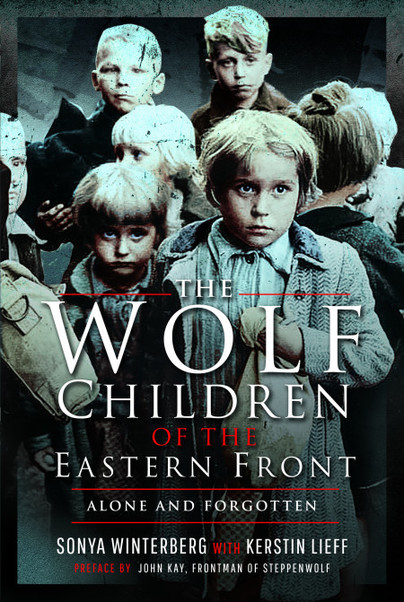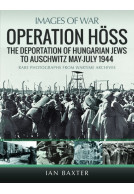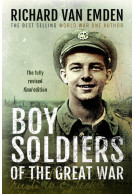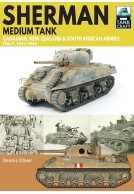The Wolf Children of the Eastern Front (Hardback)
Alone and Forgotten
Imprint: Pen & Sword Military
Pages: 232
Illustrations: 60 black and white illustrations
ISBN: 9781399014601
Published: 3rd November 2022
(click here for international delivery rates)
Order within the next 12 minutes to get your order processed the next working day!
Need a currency converter? Check XE.com for live rates
| Other formats available - Buy the Hardback and get the eBook for £1.99! | Price |
|---|---|
| The Wolf Children of the Eastern… eBook (36.6 MB) Add to Basket | £6.99 |
'If this doesn’t move you, I suggest you check your pulse.' –John Kay, frontman of Steppenwolf (born in East Prussia in 1944)
Told by the children who survived, these stories could well be the last eyewitness report of the aftermath of the Second World War. As the land where they once lived was integrated into the Eastern Bloc, their accounts remained hushed until after the Iron Curtain fell. Now, in The Wolf Children of the Eastern Front, they break their silence.
During the bitter winter months of 1944-45, hundreds of thousands of Germans fled East Prussia from an advancing Red Army. With sometimes only minutes’ notice, families escaped in horse-drawn carriages, or they simply ran on foot. In desperation, mothers threw babies onto handcarts, pushing ahead through snowstorms and freezing temperatures. Exhausted, horses broke down, left to die in roadside ditches. Pounding artillery filled the air.
In the ensuing chaos, 20,000 children lost their families – to the mayhem, to starvation, epidemics or gunfire. Even the youngest suddenly found themselves alone in the world, needing to forage for food and find shelter. They hid in bullet-riddled barns and wandered from house to house, begging for help. While many died, there are the few that managed to survive. Their experiences are unimaginable: toes frozen off, endless hunger, rape, physical abuse. Those considered lucky were eventually taken in, even lovingly cared for, primarily by Lithuanian farmers, but nearly to the last of them, they grew into adulthood illiterate and poverty-stricken. Yet a surprising truth lives within nearly every one of these victims – an overwhelming sense of hope and forgiveness.
They are the Wolf Children.
Photographs by Claudia Heinermann.
The book is a must-read as the first definitive English account of the Wolf Children (translated by Kerstin Lieff).
NetGalley, Darya Silman
5 out of 5
GoodReads, Paul Digget
This is a story of hope which will touch many. This is one of the many stories about what happened in the wild East that are being translated into English for a wider audience, and about time.
Read the Full Review Here
As featured on World War II Today
WW2 Today
Brings to light a hitherto neglected, forgotten, or deliberately hidden tragedy of World War II.
ARGrunners.com
Read full review here
Rating: 5 out of 5 stars
NetGalley, Jo Guest
A brilliant book that should be read to remind us of the sacrifices that were taken during the war to live how we do today.
Rating: 5 out of 5 stars
NetGalley, Debra Raker
A very informative book. The trials and hardships of German children as young as 3 years old trying to survive in the forests of East Prussia after WW2. Heartbreaking and amazing! How their experiences effected the rest of their lives.
Rating: 5 out of 5 stars
NetGalley, Dave Blendell
The Wolf Children of the Eastern Front by Kerstin Lieff and Sonya Winterberg is the story of the "Wolf Children" and preserves a lesser-known piece history from the end of and the aftermath of World War 2.
With East Prussia first bombed by the RAF then swarmed by Russian invaders what remained of the population, mostly women and children,fled from the hordes of the Red Army. Amid scenes of chaos and carnage 20,000 children found themselves orphaned or lost by their families and headed for the relative safety of Lithuania.. Once there they scavenged begged and did menial work leading a feral lifestyle with the lucky few adopted by Lithuanians. Even then they were not safe and the Russians continued to hound them and sanction any of the kind Lithuanian families caught helping them.
The book tells the stories of a handful of the survivors and their often harrowing stories. As young children they saw things no child should ever see and experienced hardship and abuse with many dying. along the way. With Lithuania under Soviet control they were pariahs in their new home and many went through life uneducated and in poverty.
Lieff and Winterberg interview the now elderly survivors and even take some of them back to East Prussia,now Kaliningrad where in some very moving scenes some find the houses they were forced out of as children still standing.
It's been a long time since a book has affected me as much as this one, the sheer horror and depravity of war,the worst and best of human nature is all here. At the back of my mind as I read it were recent events where history looks like repeating itself.
An excellent,and essential,read.
This book focuses on a little-known aspect of WWII, i.e., what happened to German children living in East Prussia, which during WWII was the main part of the region of Prussia along the southeastern Baltic Coast. Following Nazi Germany's defeat in World War II in 1945, East Prussia was divided between the Soviet Union, Lithuania, and Poland. The capital city of Königsberg was renamed Kaliningrad in 1946.
NetGalley, Arthur Bradford Morrill III
The German population of the province was largely evacuated during the war or expelled shortly after World War II. An estimated 300,000 Germans died either in wartime bombing raids, in the battles to defend the province, through mistreatment by the Red Army, or from hunger, cold and disease. However, this doesn’t include the 20,000 children who were separated from or lost their families (“Wolf Children”)—the focus of this book, which is filled with their testimonies.
While many died, a few that managed to survive. Their experiences are unimaginable: freezing, endless hunger, rape, abuse, and death. Some were taken in by Lithuanian families, but even then, they largely grew up illiterate and oppressed by poverty, and ultimately, largely ignored and abandoned by the governments over them. Despite these most terrible challenges and obstacles, their will to live and their hope for a better life is arresting. In all my years studying WWII, this subject is new to me. These children, now senior citizens, tell their stories…and they are moving.
I originally read a short article about the Wolf Children several years ago. Children from Eastern Prussia who were abandoned after fleeing the Russian red army in the aftermath of WW2. This book is a collection of the tales from these survivors about their lives.
NetGalley, Sarah Gallego
The author set out to collect the histories of the survivors. These narratives are often painful and heartbreaking to read. The brutality and cruelty suffered by these people is on a horrendous scale. Reading their experiences is hard to do, but it's also a humbling to see what a human can be subjected to, often at a young age, and still retain their own humanity. The impact of what they lived through goes through them all their lives.
This book is incredibly thought provoking. I found it difficult to read what those poor people were subjected to, simply because they were from Eastern Prussia. I learnt a great deal from this book and found it humbling to read.
Rating: 5 out of 5 stars
NetGalley, Marcia Vid
My reaction to this book was stunned. It is about children from East Prussia who were separated from their parents during the final stages of World War II. In the meantime, they became homeless in the forest of East Prussia or were adopted by Lithuanian families. Wolf Children were completely unknown to me. Besides reading about it, I watched a documentary on the subject. There is no way I can describe my sorrow for them and the difficult circumstances they have faced. The impact of war is always profound on those who have lived through it. Moreover, some of those children survived these terrible events and have sad memories of them. In some chapters, I was moved to tears imagining their suffering. Occasionally, I had to stop reading and reflect on things or even put myself in their shoes. If you can handle such cruelty, it might be worth your while. Furthermore, its strong narrative attracted me.
Rating: 5 out of 5 stars
NetGalley, Louise Gray
This book filled a gap in my knowledge of post-war Europe and it tells an important story which needs to be heard. This is a difficult book to read and it is fraught and filled with tragedy, but it must be read as the experiences of this generation have shaped their future generations and no doubt continue to impact society today.
The photographs helped to bring it to life and provide the reader with a human connection to the children of the stories.
NetGalley, Lucy Faulds
It’s not an easy or “fun” read, but an important one, that is particularly recommended for anyone interested in history relating to the aftermath of WW2 and/or Communist era Eastern Europe.
I feel that this is an important book since it raises our awareness of what is, for many of us, an unknown element in the History of the 20th century.
NetGalley, elizabeth madden
About Kerstin Lieff
Kerstin Lieff received her Master’s Degree in creative writing from Fairleigh Dickinson University, New Jersey. Her thesis, Letters from Berlin, was the translation of stories and diaries from World War II Germany, published in 2013, and won the Colorado Book Awards for “Best of Biography.” Since then, uncovering and writing what she calls the “second stories” of German history has become her lifelong mission.
About Sonya Winterberg
Sonya Winterberg is an award-winning writer and documentary filmmaker with roots in Finland and Germany. Much of her work focuses on children growing up in armed conflicts. War and trauma have lasting consequences on their biographies, which she has written about extensively. Her books have been translated into Chinese, Italian, Korean, and Spanish among others. An adoptive mother of two, she is an advocate for social justice and child welfare.















